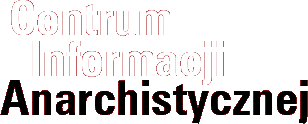Anti-Repression Workshop - G8 Camp
An Invitation to a 2-Day Workshop on the European-wide Networking of Anti-Repression Structures at the 2006 AntiG8 Camp in Germany
10th and 11th of August 2006, „Camp Inski“, Mecklenburg-Vorpommern (international mobilization camp against G8 2007)
To all those interested, and in particular those involved with the anti-repression
structures developed for the last European summits: in Prague in 2000, Gothenburg
and Genoa in 2001, Thessaloniki and Evian in 2003, Gleneagles in 2005, Russia in
2006, and the annual EU summit in Brussels and World Economic Forum in Davos.
Structural changes in “the fight against crime” have been apparent in Germany for a
number of years now. No longer is the focus solely upon solving crimes that have
already taken place, but increasingly on the prevention of criminal offences
potentially being planned and to be carried out in the future.
Thanks, not least of all, to the enormous extension of powers in this area, police work
on the production and utilisation of data to be monitored for possible “prognoses” has
intensified. As a result, measures are increasingly being taken against those who
have not yet committed an offence, but are nevertheless treated as suspicious, at
least in part, on the basis of data gathered.
International cooperation has also increased enormously. This year’s World Cup
football tournament will, most likely, be used as a general experiment in European
police and juridical cooperation. What does this mean for us?
The mobilisation against the 2007 G8 summit is intended to be as international as
possible. Many activists from other (European) countries have very little experience
with German law enforcement agencies. Therefore, information about police
strategies and criminal proceedings (and in particular the new Police Act in
Mecklenburg-Vorpommern, the federal state where the summit will take place) needs
to be made clear within the mobilisation as early as possible:
Files about supposedly “militant” activists; restrictions on entering and exiting the
country; the simplified surveillance of telecommunication; DNA tests; both
widespread and focussed video surveillance; clandestine observation; number plate
scanners; house searches; intimidation of individuals; high-specialisation of police
task forces; the unification of snatch squads and integrated evidence gatherers and
documentation teams on demonstrations; body-searches of those wanting to take
part in demonstrations; restrictions on the number, size and position of banners
which can be carried on demos; continual encirclement of demonstrators; exclusion
zones; increased cooperation between the police and prosecuting lawyers in the
area; higher sentences and so on… is only some of the relevant information for
activists planning on coming to the 2007 G8 protests. That activists from Germany
are being prosecuted here for crimes they allegedly committed elsewhere (e.g. during
the 2001 anti-EU protests in Gothenburg) is, similarly, a new dimension that people
need to be made aware of.
1
We want an exchange between your and our experiences of repression and counter-
strategies before, during and after big events such as the G8 summits that have
taken place in different locations over the last few years.
Unfortunately, there currently exists no cooperation between European anti-
repression structures. For every summit they are rebuilt anew. At the moment, it is
only amongst lawyers that, thankfully, both European and international cooperation
exists.
For this reason, alongside anyone else who is interested, we would especially like to
talk to those involved with the anti-repression structures established during the last
European summits: Prague in 2000, Gothenburg and Genoa in 2001, Thessaloniki
and Evian in 2003, Gleneagles in 2005, Russia in 2006 and, of course, the annual
EU summit in Brussels and the World Economic Forum in Davos.
The following questions could, for example, be discussed during the workshop:
•
What experiences have been had in different places?
•
What are the consequences thereof?
•
Are there different police strategies deployed in different European countries?
•
Should we, then, accordingly, deal with these different strategies in different
ways?
•
Which aspects of police work are, by now, standardised on a European level?
•
What does the international cooperation amongst authorities look like?
•
What changes are planned on a European level?
•
What are the specificities of the German security forces?
•
What, of this, is relevant to know before and with reference to the 2007 G8
summit in Heiligendamm?
•
What should our response be?
An important goal of the workshop will also be to develop, amongst ourselves, a
structure which could exist beyond the 2007 summit.
There are certainly many more issues that we could discuss. We are happy to hear
any other suggestions, or for you to offer to prepare concrete aspects of the
workshop. Most important of all, however, come to the camp!
The workshop takes place at the 10th and 11th of August 2006 at the „Camp
Inski“.
„Camp Inski“ is an international mobilization camp against G8 2007.
The place of the camp will be published on www.camp06.org, there you will find also
more information on travel etc.
.
Greetings and solidarity!
AG Antirepression; contact on g8-antirep@riseup.net






